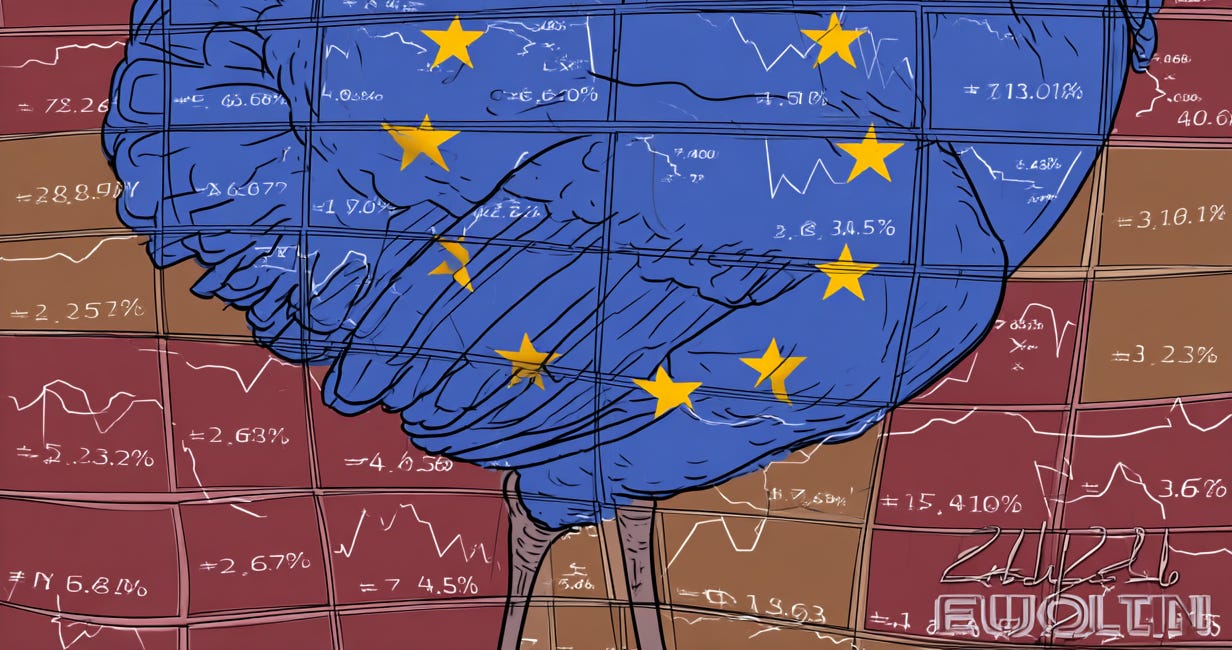The fine line between simplification and deregulation
Europe must tackle its "internal tariffs" in response to Trump’s protectionism, but carefully
Simplification must never be confused with deregulation: deregulation implies abandoning key policy objectives—most notably, in the EU’s case, green transition and social inclusion. Simplification, by contrast, enhances regulatory efficiency, pursuing the same objectives at lower costs and with higher positive externalities
The Trump administration’s protectionist measures have brought renewed attention to what Mario Draghi referred to, citing an IMF study, as the European Union’s "internal tariffs." Italy’s Prime Minister Giorgia Meloni has argued that European institutions must reduce these barriers to counterbalance U.S. tariffs.
However, these internal barriers stem predominantly from divergent national policies that obstruct the functioning of the EU single market, leading to numerous infringement procedures against member states—Italy alone currently faces 65 pending cases.
While removing these internal barriers largely falls within national governments' responsibilities, the simplification of EU regulations is a separate yet equally critical challenge. Simplification has featured prominently in reports by Mario Draghi and Enrico Letta, and more recently, in the European Commission's "Competitiveness Compass," through its Omnibus packages aimed at easing administrative burdens for businesses.
The need for simplification is pressing, as the EU must urgently modernize its outdated production models and support the development of efficient small and medium-sized enterprises (SMEs).
Effective regulation, rather than representing an economic and social cost, is in fact a strategic competitive advantage internationally.
Crucially, simplification must never be confused with deregulation: deregulation implies abandoning key policy objectives—most notably, in the EU’s case, green transition and social inclusion. Simplification, by contrast, enhances regulatory efficiency, pursuing the same objectives at lower costs and with higher positive externalities.
Although subtle in practice, this distinction is pivotal if the EU is to combine innovation and competitiveness with environmental and social sustainability in the face of external pressures from Trump's policies.
Yet regulatory complexity often arises not from the Commission's original proposals, but from cumbersome negotiations and uncoordinated amendments introduced by the Council, European Parliament, and later, national legislators. Additionally, essential institutions for effective simplification—such as the Competitiveness Council or Ecofin in matters like the Green Deal—are frequently inadequately engaged.
Moreover, regulation often lags behind innovation, resulting in overly formalistic, self-referential implementation practices. This issue is compounded by fragmented national supervisory approaches and enforcement actions, as seen with institutions like the European Financial Reporting Advisory Group (EFRAG).
So, how can the EU simplify regulations without sliding into deregulation? Four measures provide a solid starting point.
First, given the complexity typically arises during negotiations between the Council and the Parliament, approval processes should include binding impact assessments of amendments to ensure they do not excessively complicate original proposals or burden economic activity. Entrusting these assessments to independent bodies would further mitigate risks of regulatory capture by vested interests.
Second, EU directives often undergo significant distortion during national implementation, with additional obligations (gold-plating) that surpass necessary national adaptations. Therefore, prioritizing self-executing regulations over directives would streamline regulatory processes.
Third, as a key member of EFRAG, the Commission should ensure European sustainability standards align closely with international benchmarks (promoted by the IFRS), unless clearly justified deviations are necessary.
Finally, enforcement actions against violations of single-market rules should be centralized to overcome national fragmentation. For example, the European financial markets should fall under a single supervisory authority—such as a reformed European Securities and Markets Authority (ESMA)—rather than 27 national bodies.
Each measure involves trade-offs. Self-executing regulations, for instance, require more detailed EU provisions, while impact assessments for amendments can lengthen adoption times.
Ultimately, the EU must avoid the illusion of crafting "complete contracts," weighed down by redundant oversight. Instead, it should adopt "incomplete contracts" incentivized through centralized mechanisms—including financial ones—that effectively ensure regulatory compliance.
A version of this article originally appeared in Il Sole 24 Ore.
IEP@BU does not express opinions of its own. The opinions expressed in this publication are those of the authors. Any errors or omissions are the responsibility of the authors.
Marco Buti
Since April 2023, Marco Buti has held the Tommaso Padoa Schioppa chair at the Robert Schuman Centre. Before joining the EUI, Buti was Chief of Staff of the Commissioner for the economy, Paolo Gentiloni. Between 2008 and 2019, he was Director-General for Economic and Financial Affairs at the European Commission. Moreover, he has been the Commission Finance Deputy at G7 and G20.
Marcello Messori
Marcello Messori is a part-time professor at the Schuman Centre, European University Institute (EUI), and a member of the EMU-Lab at the same Centre. He is a non-resident Fellow at the Institute for European Policy Making (IEP), Bocconi University. He is co-coordinator of the ‘Gruppo Europa’ at Astrid Foundation.
Recent IEP@BU Posts
The Turkeys’ Survival Instinct Is Europe’s Undoing
Opposition to further integration is turning Europe’s capital markets into a desert, to the benefit of Wall Street.
The IEP@BU Mission
Founded by Bocconi University and Institute Javotte Bocconi, the Institute for European Policymaking @ Bocconi University combines the analytic rigor of a research institute, the policy impact of a think tank, and the facts-based effort of raising public opinion’s awareness about Europe through outreach activities. The Institute, fully interdisciplinary, intends to address the multi-fold obstacles that usually stand between the design of appropriate policies and their adoption, with particular attention to consensus building and effective enforcement.
The Institute’s mission is to conduct, debate, and disseminate high-quality research on the major policy issues facing Europe, and the EU in particular, its Member States and its citizens, in a rapidly changing world.
It is independent of any business or political influence.
The IEP@BU Management Council
Catherine De Vries, IEP@BU President
Daniel Gros, IEP@BU Director
Sylvie Goulard, IEP@BU vice-President, Professor of Practice in Global affairs at SDA Bocconi School of Management
Silvia Colombo, IEP@BU Deputy Director
Carlo Altomonte, Associate Professor at Bocconi University and Associate Dean for Stakeholder Engagement Programs at SDA Bocconi School of Management
Arnstein Assve, Professor in Demography at Bocconi University
Valentina Bosetti, professor of Environmental and Climate Change Economics at Bocconi University
Elena Carletti, Dean for Research and Professor of Finance at Bocconi University
Eleanor Spaventa, Professor of European Union Law at Bocconi Law School










